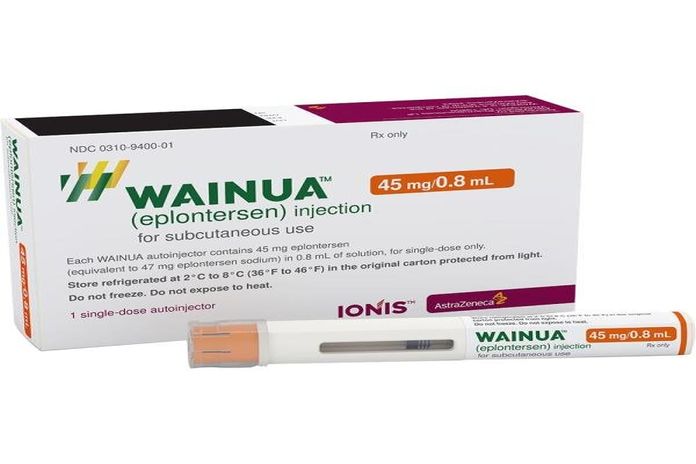LONDON, England – The Medicines and Healthcare products Regulatory Agency (MHRA) has approved eplontersen (Wainua) to treat adults with polyneuropathy associated with hereditary transthyretin amyloidosis (ATTRv), which is a rare progressive condition that runs in families caused by a protein called transthyretin (TTR).
In people with this disease, small fibres of TTR protein clump together to make deposits called ‘amyloid’. Amyloid can build up around or within the nerves, heart and other organs, stopping them from working properly.
Eplontersen is specifically indicated for use when the disease is causing polyneuropathy, which is damage to multiple nerves outside of the brain and central nervous system, resulting in pain, discomfort, progressive weakness and loss of sensation in the legs and arms, and mobility difficulties.
Eplontersen works mainly by lowering the amount of TTR protein made by the liver. As a result, there is less TTR protein in the blood to form amyloid deposits. That can help reduce the effects of the disease.
The recommended dose of eplontersen is one 45mg dose every month, administered as an injection under the skin using a pre-filled pen. Treatment with eplontersen lowers the amount of vitamin A in the blood and patients will need to take vitamin A supplements during treatment.
Julian Beach, MHRA interim executive director of healthcare quality and access, said:
“Enabling safe access to high quality, safe and effective medicines is a key priority for us. We’re assured that the appropriate regulatory standards of safety, quality and effectiveness for the approval of this new formulation have been met. As with all products, we will keep its safety under close review.”
The MHRA’s approval of the medicine is supported by evidence from a NEURO-TTRansform study. In this trial 168 adult patients with hereditary transthyretin-mediated amyloidosis received a subcutaneous injection of eplontersen 45 mg every 4 weeks compared to an historical placebo arm from the older NEURO-TTR study completed in 2017 as well as patients who received another medicine called inotersen 284 mg weekly.
The study looked at levels of TTR in the blood of patients to measure the levels of this protein that contributes to the disease. It also used questionnaires to rate the changes that patients reported in the symptoms of their nerve damage. This study tracked these changes from the start of the trial (baseline) to 35 and 66 weeks after the patients had received eplontersen.
Patients in the trial receiving eplontersen experienced greater reductions in TTR levels and less worsening of the disease from baseline compared to the placebo group.
A full list of all side effects reported with this medicine is available in the patient information leaflet or from the product information published on the MHRA website.
If a patient experiences any side effects, they should talk to their doctor, pharmacist, or nurse. This includes any possible side effects not listed in the product information leaflets. Anyone who suspects they are having a side effect from this medicine is encouraged to talk to their doctor, pharmacist or nurse and report it directly to the MHRA’s Yellow Card scheme.





